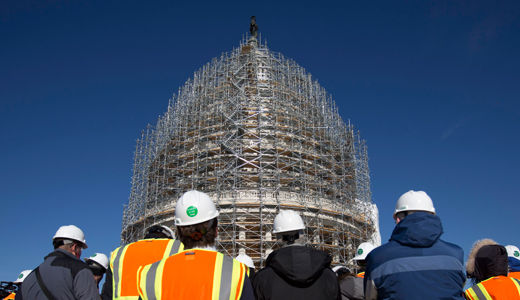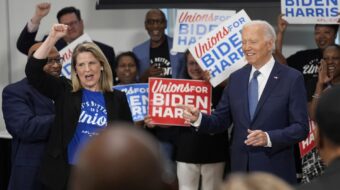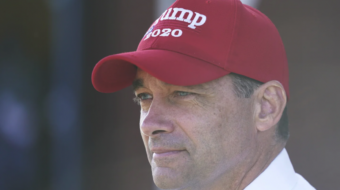
WASHINGTON – Money bills – both a short-term bill to keep the government going after Sept. 30 and a longer-term larger bill for the new fiscal year that starts Oct. 1 – top labor’s legislative agenda when Congress returns to D.C. on Sept. 8.
But it’s not just the numbers themselves that are important, AFL-CIO Legislative Director Bill Samuel says. It’s what the majority Republicans may try to insert into the measures, too.
Congress faces a heavy workload when it returns after its August recess:
- By the end of the current fiscal year, it must approve the 12 money bills to keep all government agencies going – an unlikely if not impossible prospect – or enact a short-term “continuing resolution,” funding the agencies at current levels until lawmakers can work out a permanent solution. Then it could work on the permanent money bills for months.
- By Sept. 17, it has a self-imposed deadline on whether to vote on a resolution disapproving the agreement between Iran and the six most powerful world nations curbing and rolling back Iran’s nuclear development program.
- The latest short-term fix of funding for highways and mass transit projects expires at the end of October.
- At some point before the end of the year, lawmakers will have to raise the federal debt limit again, providing another platform for political posturing. The last time they did so, the ruling Republicans brought the U.S. to within hours of a default on its debts.
And most of those measures, especially the permanent money bills and the continuing resolution, offer the ruling Republicans opportunities for anti-worker measures. Samuel is particularly concerned about attempts by the Republican right to overturn pro-worker National Labor Relations Board rulings and Labor Department worker income and safety rules.
“The Republicans have a number of policy riders” that hurt workers, Samuel explains. “They may go to the brink” of shutting down the government, again “over their threats involving the NLRB and the Labor Department.” Those threats include:
- Moves to ban the NLRB from using any money to implement items such as the board’s new joint employer standard and ban DOL from starting its new overtime pay rule and several job safety rules, including one regarding silica exposure.
The Senate version of the money bill for the Labor Department and the NLRB also bans use of funds for the agency’s four-year old Specialty Healthcare decision, which the GOP alleges allows creation of “micro-unions” within firms. Courts have upheld the NLRB’s ruling.
- Riders in Senate money bill would prevent DOL from regulating investment advisors for workers’ retirement plans. DOL’s rule “would help to ensure retirement savers and retirement plan sponsors and their employees are receiving investment advice in their best interests-and that investment advisors are not providing conflicted or merely suitable investment advice,” Samuel said in an earlier letter to senators.
- A Senate money bill section orders the Labor Department to change its H-2B visa rules, depressing the visa holders’ wages and denying U.S. workers “the right to receive the same pay and benefits offered to H-2B visa holders.”
- Another Senate money bill section overturns the executive order by President Obama for a $10.10 hourly minimum wage, starting Jan. 1, of employees of federal contractors – such as workers in PXs and janitors and fast-food workers in federal buildings.
The Government Employees (AFGE) will fight congressional schemes to force the federal workers to pay even more out of their wallets for pensions, with no increase in pension payouts when they retire. The GOP wants to divert the extra money to other purposes.
- AFGE will also oppose the latest plot, which the GOP-run House approved on a party-line vote last month, to yank all federal civil service protections from all Department of Veterans Affairs workers, turning the agency into a re-creation of the old spoils system, where managers could fire workers on a whim. That could be folded into a money bill, too.
Photo: Members of the media gather for a news conference on the roof of the Capitol Building in Washington where Congress meets, to announce the completion of the scaffolding and the start of the repairs for the Capitol Dome Restoration Project. (AP Photo/Carolyn Kaster)












Comments